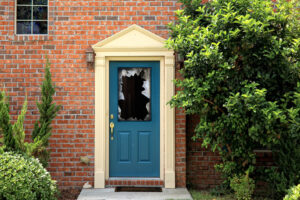If your child has been charged with juvenile vandalism, you might have additional questions other than what we have covered on our website. The best way to get answers you need to your specific case is to contact Law Office of Michael L. Fell at (949) 585-9055 and request a free legal consultation. In the meantime, you can also keep reading to get answers to three of our most common questions.
- What if the vandalism was really bad?
- Are all states the same when it comes to juvenile offenses?
The conditions of probation may be tougher if the vandalism involves a lot of personal property damage or if the destroyed property was valuable. A probation period that cannot be fulfilled at home may be imposed by the judge. He or she may even sentence you to a juvenile prison facility. However, a juvenile vandalism crime will almost certainly not result in incarceration.
No, each state has its own approach to juvenile offenders. Even inside the state, judges have a lot of leeway in determining how to punish a young criminal.
Even whether the perpetrator is deemed a minor varies by state. The maximum age for a defendant to be tried as a juvenile in virtually all jurisdictions is 17. Many jurisdictions, however, have laws that enable a younger person to be prosecuted as an adult for a very serious offense. Each state has its own list of crimes that can be prosecuted in adult court. However, most cases of vandalism will not be serious enough to be sent to adult court.
The state's expungement laws are much more diverse. In certain cases, juvenile records that can be sealed in one state may not be eligible for expungement in another.
What is California's legal framework regarding vandalism?
In California, vandalism is a more complicated offense: depending on the value of the property defaced, adults may face misdemeanor or felony penalties.
However, juveniles are not charged with vandalism. Instead, the district attorney files a "petition" charging the accused of vandalism. At the jurisdiction hearing, if the judge determines beyond a reasonable doubt that the juvenile committed the vandalism, he or she will “sustain” the petition. The judge will issue a punishment during the disposition hearing.
In California, there are two forms of probation for juveniles: informal and formal. The least serious penalty of a juvenile vandalism conviction is informal probation. If the juvenile follows the program's requirements for six months, the petition will be dismissed or never be submitted.
Formal probation necessitates the accused's presence in a juvenile detention center or camp. These camps follow a strict framework that prioritizes healing, education, and training. A formal probation sentence might last anything from three months to a year.
Parents are also held liable for vandalism perpetrated by their children under California law. If a fine is imposed by a juvenile court and the kid is unable to pay it, the parents may be forced to pay it. Parents may also be held liable for their child's failure to complete any community service requirements.
Parents should seriously consider contacting a criminal defense attorney who can help both them and their child.


